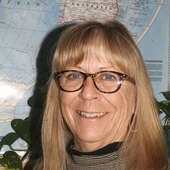- Research tips and McCook Brick Company- solid as a brick (12/16/24)
- Big Give appreciation and some railroad characters (11/15/24)
- George Randel becomes a landowner, gets married, and takes in a Buffalo Bill show (9/20/24)
- The memoirs of George F. Randel, early settler of Red Willow County (9/12/24)
- Vietnam War Memorial honors Nebraskans who served (6/13/24)
- McCook business promotions - just prior to 1893 stock market crash (5/30/24)
- Shall we dance? Meet you at the Gayway (12/8/23)
Gifts given to SWNGS
Friday, March 23, 2018
Mike Manker, who brought the Enright Collection to the Southwest Nebraska Genealogy Society library, that was returned to a very grateful family, has again gifted the library with several historical books.
Two copies of the booklet “One hundred years of living: Indianola Nebraska” were among these gifts. Published in 1973, many interesting facts concerning Indianola are contained in it’s pages including: Kate Thomas founded the Old Settlers Picnic and the first took place in 1902; George Hill’s research, published in 1927 noted that Washington Hinman brought a portable saw mill to Indianola to provide rough green timber for the settlers to build their homes; the first court house was located about 200 feet south of where Lord’s hardware is, and was a wood frame structure 16’ by 24’ in size; John Byfield had a trading post by Red Willow Creek from 1872-1876 which catered to hunters and homesteaders; Earl Allen first worked for Loton Duckworth starting in 1908 and then purchased the business continued to operate it until 1965.
If you have reason to research Washington County, Ohio, Mike has made a gift of a binder containing Washington County Genealogical Newsletters. Among the subjects covered is a listing of the Infirmary Register for the Ohio Home located there. The dates include 1864-65 and lists residents and the reasons for their placement such as: Thomas and Daniel Chadwick, ages 2 and 4, from Marietta, housed due to being destitute or Phoebe Spindler and Mary L. Nixon, ages 20 and 25, housed due to being pregnant. Perhaps the most remarkable post was Jonas Pool, age 46, housed due to masturbation. Strange that they housed expectant mothers, destitute, ill, insane and infirmed people in one institution.
Mike also made a gift of a 2018 Plat Book for Red Willow County and as a reminder to everyone, Plat books are highly sought after by our society. We have many inquires about where certain landowners were located in prior years and if you have old plat books, we would definitely treasure having them.
Lastly, a gift of the book, “The Western: The Greatest Texas Cattle Trail 1874-1886” by Gary and Margaret Kraisinger, is greatly appreciated. This book is a treasure trove of information concerning not only the droves of cattle that traversed Northwest Kansas and Southwest Nebraska but also contains information surrounding Indian raids, historical landmarks and early settlements. I learned several things with just a quick look through including the original “Trail City” which lay just west of where Trenton now stands approximately on the current Pow Wow grounds. I should have known, but didn’t, that Oberlin’s first settlement was called Sappa.
Apparently, the cattle herds were not greeted with enthusiasm by the homesteaders along the trail for many reasons but Texas Fever, a cattle ailment, tended to be the most prominent. When the Snyder drovers were herding cattle through Kansas, they found most of the dugouts and homes empty and rumors of Indian raids abounding. Happening on a Texas outfit driving 800 head of horses along the trail, the Snyder boss man inquired if they had seen any Indians and the horse driver explained: “we were so harassed by the settlers driving us from place to place that we had to resort to some expedient to make us welcome intruders. They would not let us pass through their settlements and would not let us rest or graze our horses, so we had to do something. We began making night drives and putting out Indian reports. The raid of last year was fresh in memory, and all we had to do to depopulate the plains was to start Indian tales. In our night drives during the dark of the moon, we were mistaken for a strong band of Cheyenne. We are the only Indians in western Kansas, but please keep it mum. If they get onto our joke, they will come back and hang us every one.”
For more wonderful stories of the old cattle trails, including maps and locations of landmarks, come to the SWNGS library on Tuesday or Thursday from 1-4 during our open library hours. Located at 110 West C Street, Suite M-3, we meet the first Saturday of every month.

